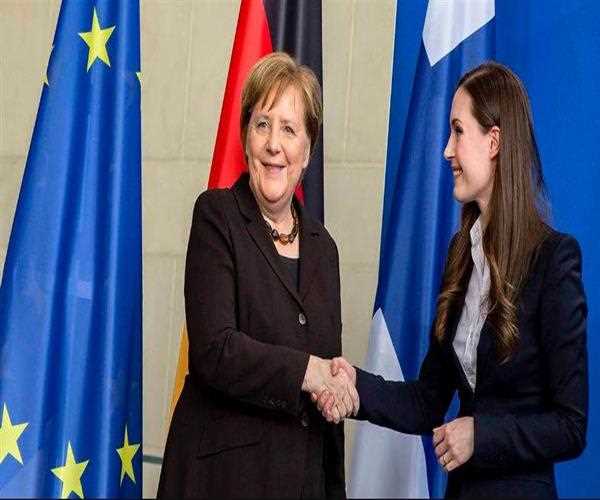Search here

20-May-2020
Democracy Is The System For Handling Healthcare Crisis
The COVID-19 emergency has gotten the most recent front in the raising conflict of belief systems that have become a focal component of geopolitics as of late. Speaking to tyranny is China, which has touted the accomplishment of its forceful lockdown procedure in checking the coronavirus' spread.
Speaking to the majority rules system is an expansive exhibit of nations, some of which have reacted far more regrettable than others. Things being what they are, which political framework is more qualified to overseeing emergencies?
The idea that dictator systems have a bit of leeway might be appealing. While in popular governments, for example, the United States, individuals may misjudge their opportunity and oppose defensive estimates like veil wearing, dictator systems can undoubtedly force and authorize decides that serve the open great.
Besides, some have contended that China profits by the Confucian convention, with its accentuation on congruity and regard to power, rather than Western majority rules systems' accentuation on singular self-governance and agree to power.
China's administration has been endeavoring to fortify these accounts, including by taunting the moderate reaction in the US. Also, the facts confirm that an unexpected severe lockdown like the one that contained the COVID-19 episode in Wuhan – the pandemic's first focal point – would be utter horror to Americans. In any case, with regards to evaluating political frameworks' ability to react to emergency, this examination overlooks what's really important.
First of all, popular governments that maintain Confucian standards –, for example, Hong Kong, Japan, Singapore, South Korea, and Taiwan – have dealt with the COVID-19 emergency at any rate as viably as China. So have a few majority rules systems without a Confucian convention, including Australia, Austria, Greece, New Zealand, and Portugal. Truth be told, among the nations whose presentation during the emergency has been appraised most profoundly, the larger part are popular governments.
What these top-positioned vote based systems share for all intents and purpose is that their pioneers perceived the size of the test, discussed solidly with their residents, and made opportune move. More regrettable performing nations, on the other hand, were either found to a great extent napping (Italy and Spain) or had pioneers who intentionally deferred activity (Brazil, the United Kingdom, and the US).
Somewhat, even the last disappointment isn't off the mark with history: as the runup to the two universal wars appears, majority rule governments have frequently been delayed to perceive the danger of war. However, when they did, they generally won, because of a mix of decided activity and open trust in government.
Valid, some fair governments these days have generally lost the open's trust and appear to be resolved not to act. US President Donald Trump and Brazilian President Jair Bolsonaro have both made light of the seriousness of the infection and negated master counsel while reveling their own narcissistic need to seem extreme. English Prime Minister Boris Johnson has shown comparable inclinations.
READ HERE MORE : Small Industries Should Be The Target Of Economic Relief Package
In any case, this can scarcely be viewed as an entanglement of majority rule government. All things considered, during the COVID-19 emergency, numerous heads of just governments have risen as models of illuminated administration.
In New Zealand, 39-year-old Prime Minister Jacinda Ardern has spoken honestly about the danger the infection presents, engaged individuals' feeling of shared obligation, and executed science-based measures. Another case has not been identified in days.
In Germany, Chancellor Angela Merkel's quiet, straightforward, and valid correspondence style has added to a reaction that has kept the casualty rate low. Undaunted and auspicious activity taken by Denmark's Mette Frederiksen, Taiwan's Tsai Ing-wen, Norway's Erna Solberg, Iceland's Katrín Jakobsdóttir, and Finland's Sanna Marin have delivered likewise noteworthy outcomes, without veering from law-based standards.
These pioneers had the trust of their residents. (One may contend that choosing a lady chief – at times, an exceptionally youthful one – mirrors a nation's political development and major trust is crafted by government.) And their reactions extended it.
Then, tyrant systems rely upon purposeful publicity and restriction to keep up a patina of authenticity, making the absence of trust in government for all intents and purposes inevitable. For what reason would one trust China's COVID-19 figures, when it has been broadly announced that neighborhood specialists' underlying reaction to the flare-up was set apart by concealment of data?
This is a long way from China's first coverup. During the 2003 flare-up of serious intense respiratory disorder (SARS), a doctor needed to turn into an informant before the legislature came clean about the scourge. Some educated eyewitnesses don't trust China's legitimate GDP insights. Regardless, another flood of COVID-19 diseases in China currently is by all accounts rising.
The issue isn't that China didn't gain proficiency with its exercise; the issue is that it proved unable. Furthermore, that is the point. In a majority rule government, an emergency is a political test: a pioneer must hold or fortify the open's trust, or hazard being removed in the following political race. In any case, in a despotism, an emergency is a danger to the system's authenticity – for sure, its endurance.
With such high stakes, a coverup will consistently appear the most secure wager. To anticipate that such a legislature should react in an unexpected way, as Trump has requested of the Chinese, might be commensurate to calling for system change.

Join Our Newsletter
Subscribe to our newsletter to receive emails about new views posts, releases and updates.
Copyright 2010 - 2025 MindStick Software Pvt. Ltd. All Rights Reserved Privacy Policy | Terms & Conditions | Cookie Policy